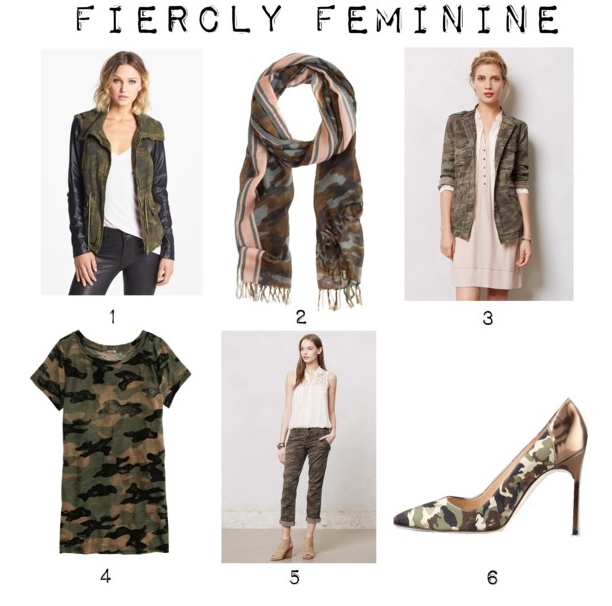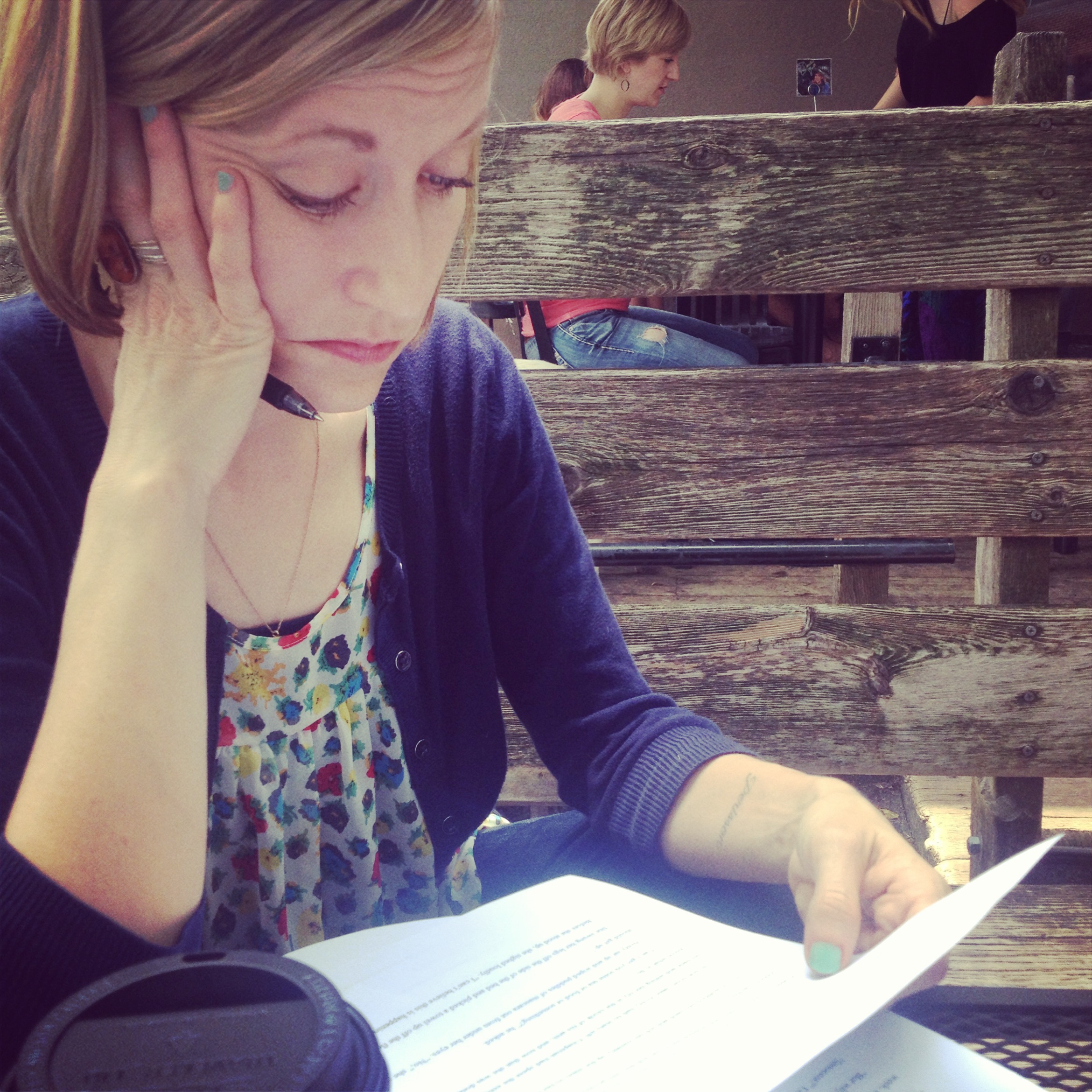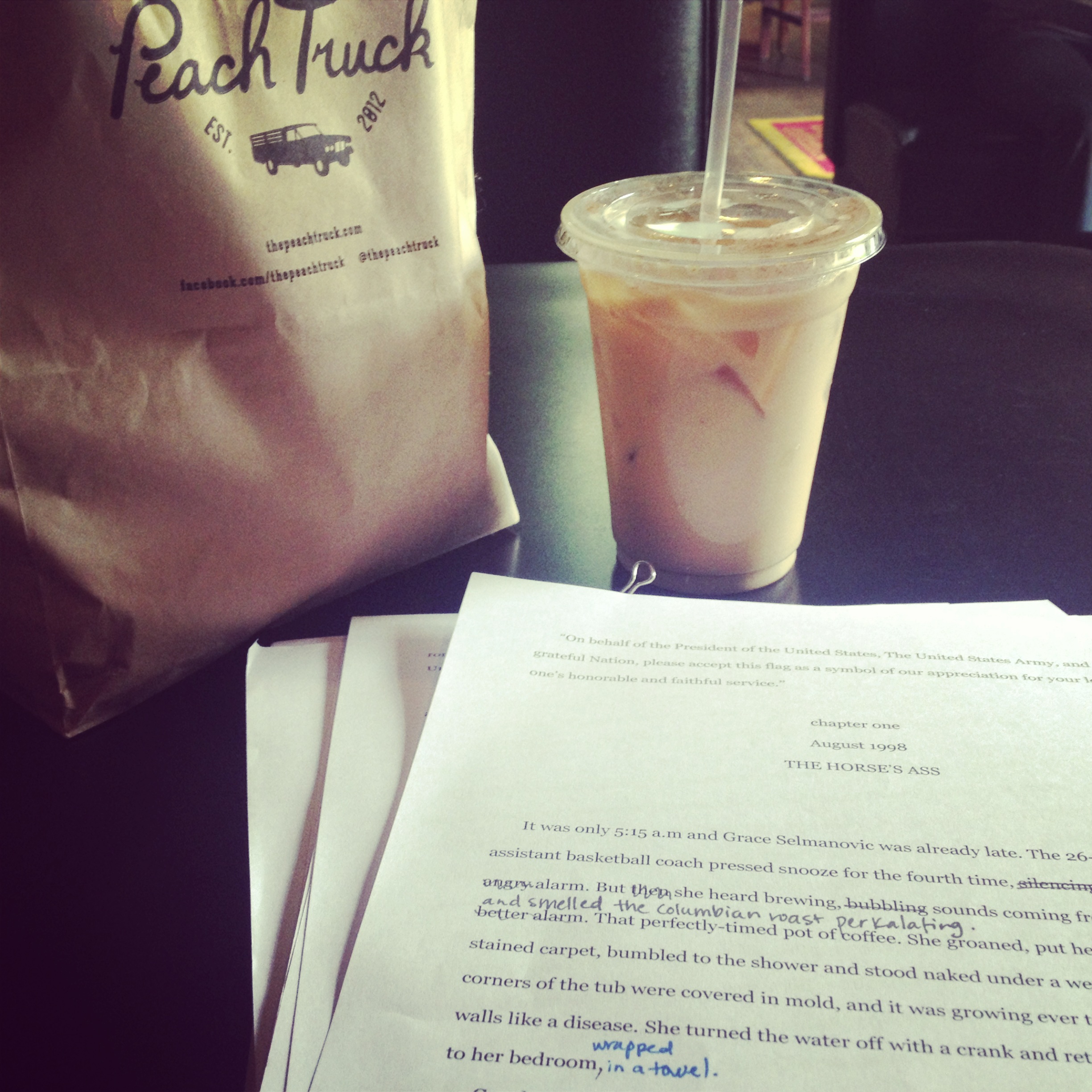A few months back, I boldly admitted to the world that I'm writing a book.
That was probably a good decision, because the public shame of stopping has ultimately kept me from stopping. It's like going running on 12 Ave South. If I stop... I know someone will notice me walking. And I'd rather them see me jogging slowly than walking. So I keep going.
It's a positive kind of shame. Let's call it positive peer pressure.
 Nashville's Library. My favorite workspace.
Nashville's Library. My favorite workspace.
And there are other things I've learned, too. When you take on a large project that's bigger and nastier than you ever expected—expect to get your butt kicked and you brain bent more than a few times.
Here are five lessons I've learned while writing something bigger than ever...
1. When you're staring at a blank page, just do the next thing.
There's nothing scarier than a blank page. So fill it. I've had to learn that if I'm stuck, the only way to get out of that rut is to move forward. So what happens next? What needs to happen next to move you to the next page? Write it. It doesn't have to look pretty or sound pretty (see #3), it just needs to happen.
2. If someone asks what you're working on, tell them.
Something that's been hard for me lately is feeling like I'm not doing anything of value (see #5). And when people ask me what I'm working on, I wish I could give them a measurable, understandable answer (i.e., 'Oh, I'm on summer break, becuase I'm a teacher,' or 'I just finished up three great stories for GQ, Esquire, and Vogue'). But when you're working on an extended project... you don't have that luxury. So I've had to force myself to own up to the truth. I'm writing a book. Then, it forces me to pitch it over and over again. By answering the next, logical question—what is it about?—I'm helping myself get back to the heart of what it's about. And that is a good thing.
3. Don't be your own critic. At first.
When you start writing, it's going to be ugly and sloppy and you're going to say that your characters "sigh" a lot. Who cares. If they are sighing in your head, write that they're sighing on the paper. You can get out your thesaurus and change words and mess with it later. Just write it down now. This is why I've found that I'm better writing things by hand. Yes. By hand. That way, I can use really bad handwriting, and I can just get everything down without going backwards and editing (copy, cut, paste, delete, change) before I've even written 10 words. Once it's down on paper, I can type it. And when I type it, I can make it better. But if I start criticizing the story I'm writing before it's even written, I'll never keep going.
4. Forget the future. For now.
It's easy to get lost in the "what is the point of this" question. Where is it going? What is the end result going to be? Will anyone ever read it? Those questions are rough and are worth answering. But when you're in the middle of writing—those questions must be beat down into the ground and out of the room. They should be tied up and left for dead. At least until you're done writing. Because the truth is, the future doesn't matter unless the book is written—the answers are Nowhere, Nothing, and No One, unless you keep going.
5. Stop Looking at the Bottom Line.
Money. It's a scoundrel. It also keeps me feeling like I'm not doing something of value. But in reality—money can't drive what we create. I am in research and development stage. In grad school, so to speak. Yes. I'm giving up time and energy and possible income to write a book. But it's an investment. Not a waste.
These are the lessons I'm learning. And I'm forcing myself to write them down—because I have to preach this to myself. I have a feeling these same lessons could apply to lots of different undertakings...
Parenthood.
Writing music.
Taking pictures.
Starting a business.
Just living.
Do you agree?




 Nashville's Library. My favorite workspace.
Nashville's Library. My favorite workspace.
 This is West Point. My once home.
This is West Point. My once home.